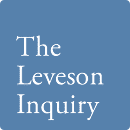Press regulation – the Irish model
The purpose of the Leveson Inquiry is to examine the British press and its ethics. Given how culturally specific the press tends to be it might appear to be a fruitless exercise comparing different regulatory regimes. Ireland is a possible exception, given that many of the same newspapers are freely available in Ireland and many British newspapers, especially the tabloid have Irish editions, with Irish content mixed with British content.
It might be of interest to look at the reaction of some of those newspapers, which did accept and join up to a very different regime than that operating in the UK.
While most of the Irish media accepted the need for a regulatory system, all be it with reluctance in some cases, many of the British newspapers with a presence in Ireland were strongly opposed. A number of Sunday Times’s Irish columnists, for instance, wrote pieces opposing the Press Council. Others warned of the threat to press freedom.
The Irish Press Council and Press Ombudsman system was launched in January 2008 following years of debate and negotiation concerning the libel and defamation regime, considered even more draconian than the UK’s.
There were three groups involved, successive governments and politicians; journalists and finally, proprietors. Each had their own agendas. Politicians were unwilling to concede anything and could see no reason to relax or reform defamation. Some politicians, far from supporting reform wanted to make things more difficult for the press, by insisting on privacy legislation that would sit alongside defamation laws that were last examined in the 1960s.
Journalists, through NUJ (the NUJ operates in Ireland as well as the UK) wanted to be involved in any regime that would emerge and not be sidelined as had happened in the UK.
Proprietors wanted libel reform first and foremost and were willing to concede regulation to get that. Ranging from News International to owners of small family run local newspapers, the proprietors were often less than united.
The council was launched in Jan 2008, following about five years of organisation and planning. The steering committee drew its membership from newspaper and magazine proprietors and the NUJ and was chaired by a former Provost of Trinity College, Dublin, Dr Tom Mitchell. Some groups, particularly News International in Ireland had, to be, more or less, dragged to the table — it had a particular problem with the NUJ’s presence. At one stage the NI representatives did not even want to be in the same room as a trade union member.
The system that emerged was a hybrid, a mix of Britain’s Press Complaints Commission and the Scandinavian ombudsman. One of the more urgent tasks of the Steering Committee was convincing the Government (and a sometimes sceptical public) that the proposed Press Council was independent and would not be a mouthpiece for the newspaper proprietors who were funding it. It was absolutely necessary to ensure there was a system were members of civic society, whose independence was beyond question, would be in the majority.



